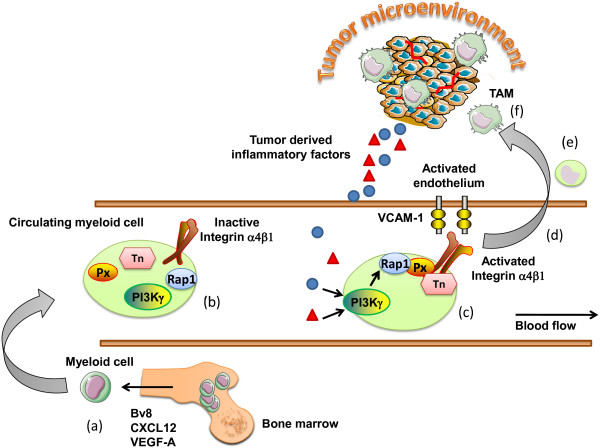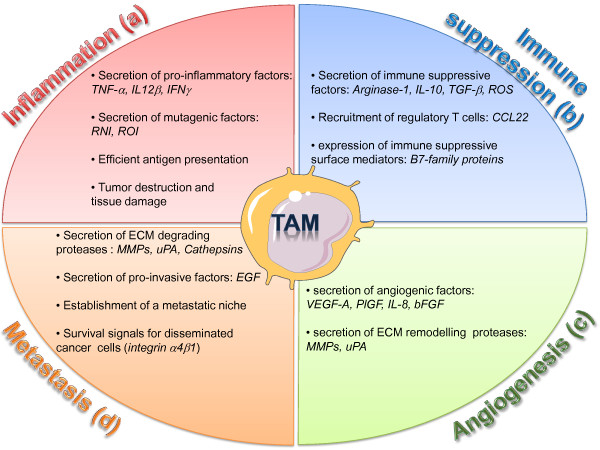Myeloid cells in tumor inflammation.
Q4 Neuroscience
引用次数: 65
Abstract
Bone marrow derived myeloid cells progressively accumulate in tumors, where they establish an inflammatory microenvironment that is favorable for tumor growth and spread. These cells are comprised primarily of monocytic and granulocytic myeloid derived suppressor cells (MDSCs) or tumor-associated macrophages (TAMs), which are generally associated with a poor clinical outcome. MDSCs and TAMs promote tumor progression by stimulating immunosuppression, neovascularization, metastasis and resistance to anti-cancer therapy. Strategies to target the tumor-promoting functions of myeloid cells could provide substantial therapeutic benefit to cancer patients.


骨髓细胞在肿瘤炎症中的作用。
骨髓来源的骨髓细胞在肿瘤中逐渐积聚,在那里它们建立了一个有利于肿瘤生长和扩散的炎症微环境。这些细胞主要由单核细胞和粒细胞骨髓源性抑制细胞(MDSCs)或肿瘤相关巨噬细胞(tam)组成,它们通常与较差的临床结果相关。MDSCs和tam通过刺激免疫抑制、新生血管形成、转移和对抗癌治疗的抵抗来促进肿瘤进展。针对骨髓细胞促肿瘤功能的策略可以为癌症患者提供实质性的治疗益处。
本文章由计算机程序翻译,如有差异,请以英文原文为准。
求助全文
约1分钟内获得全文
求助全文

 求助内容:
求助内容: 应助结果提醒方式:
应助结果提醒方式:


